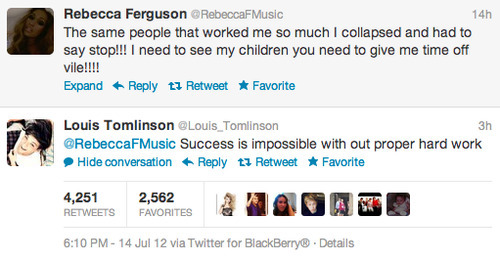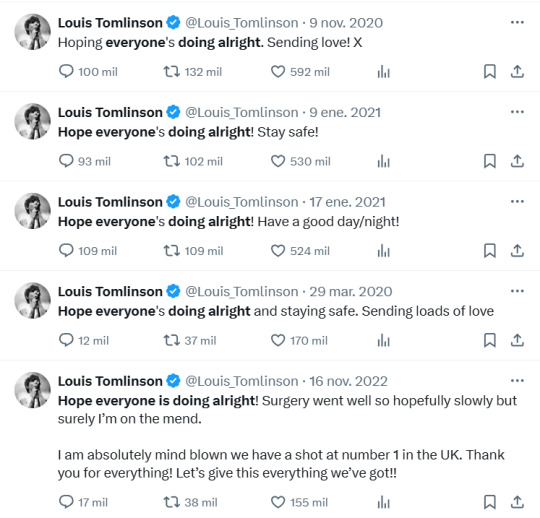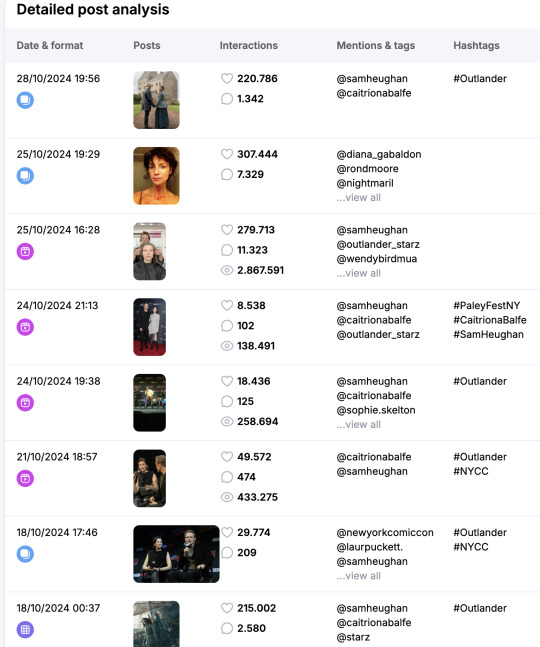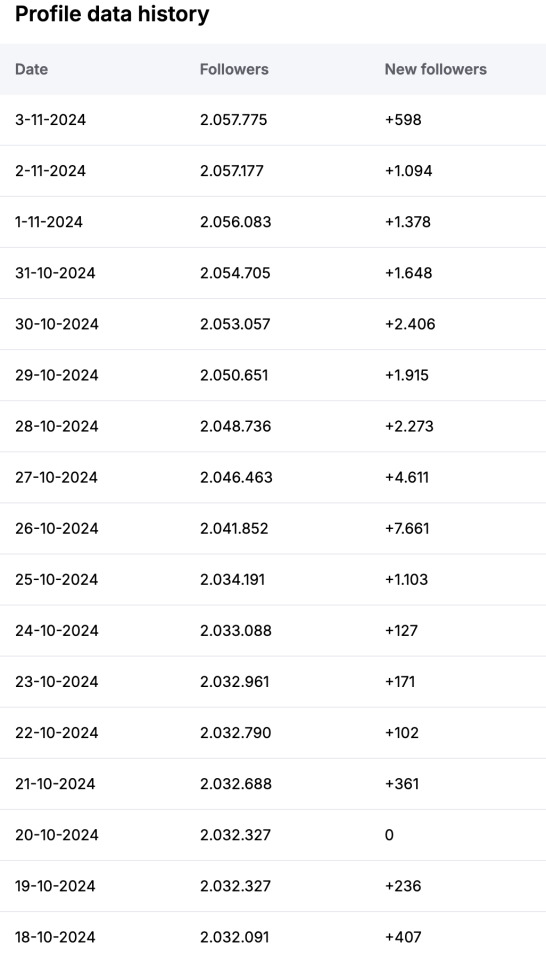#Analytics of Things Market Analysis
Explore tagged Tumblr posts
Text
Analytics of Things Market to See Huge Growth by 2030

Global Analytics of Things Market Report from AMA Research highlights deep analysis on market characteristics, sizing, estimates and growth by segmentation, regional breakdowns & country along with competitive landscape, player’s market shares, and strategies that are key in the market. The exploration provides a 360° view and insights, highlighting major outcomes of the industry. These insights help the business decision-makers to formulate better business plans and make informed decisions to improved profitability. In addition, the study helps venture or private players in understanding the companies in more detail to make better informed decisions. Some are the key & emerging players that are part of coverage and have being profiled are Cisco Systems (United States), Microsoft Corporation ((United States), SAP SE (Germany), Intel Corporation (United States), IBM Corporation (United States), Capgemini (France), TIBCO Software (United States), AGT International (Germany), Google, Inc. (United States). Get Free Exclusive PDF Sample Copy of This Research @ https://www.advancemarketanalytics.com/sample-report/72444-global-analytics-of-things-market-1 Analytics of Things (AoT) is the next step for Organizations implementing IoT. It conducts analytics on the data generated by IoT. IoT alone does not make sense as without conducting analytics, mere data collection will be of little use. Increase in rapidly changing technology and social media, Internet, and mobile utility, owing to the tremendous demand for analytics by various organizations is driving the Global AoT market. Further, There is a growth in massive data is mainly due to rise in the number of channels such as mobile computing, IoT, and social media which is leading to increased adoption of IoT enabled devices.
The titled segments and sub-section of the market are illuminated below: by Type (Software, Service), Application (Energy Management, Security and Emergency Management, Building Automation, Infrastructure Management, Others), End users (Retail and E-Commerce, Government and Defense, Healthcare and Life Sciences, Telecommunications and IT, Others), Services (Managed Services, Professional Services, Others), Software (Sensor Data Analytics, IoT Gateway Analytics, Network Management)
Market Trends:
Ease of Deployment and Reduced Cost of Components
Facilitates Analysis of Large Amount of Data Generated by IoT
Opportunities:
Increasing Demand for IoT and Demand for Instant Information
Big Organizations Investing in Advanced Technology and Skilled Human Resources
Market Drivers:
Increasing Frequency of End-to-End Automation Process
Rising Number of Connected Device
Soaring Need for Advanced Technology
Global Analytics of Things market report highlights information regarding the current and future industry trends, growth patterns, as well as it offers business strategies to help the stakeholders in making sound decisions that may help to ensure the profit trajectory over the forecast years. Region Included are: North America, Europe, Asia Pacific, Oceania, South America, Middle East & AfricaCountry Level Break-Up: United States, Canada, Mexico, Brazil, Argentina, Colombia, Chile, South Africa, Nigeria, Tunisia, Morocco, Germany, United Kingdom (UK), the Netherlands, Spain, Italy, Belgium, Austria, Turkey, Russia, France, Poland, Israel, United Arab Emirates, Qatar, Saudi Arabia, China, Japan, Taiwan, South Korea, Singapore, India, Australia and New Zealand etc. Have Any Questions Regarding Global Analytics of Things Market Report, Ask Our Experts@ https://www.advancemarketanalytics.com/enquiry-before-buy/72444-global-analytics-of-things-market-1 Points Covered in Table of Content of Global Analytics of Things Market:
Chapter 01 – Analytics of Things Executive Summary
Chapter 02 – Market Overview
Chapter 03 – Key Success Factors
Chapter 04 – Global Analytics of Things Market - Pricing Analysis
Chapter 05 – Global Analytics of Things Market Background
Chapter 06 -- Global Analytics of Things Market Segmentation
Chapter 07 – Key and Emerging Countries Analysis in Global Analytics of Things Market
Chapter 08 – Global Analytics of Things Market Structure Analysis
Chapter 09 – Global Analytics of Things Market Competitive Analysis
Chapter 10 – Assumptions and Acronyms Chapter 11 – Research Methodology Read Detailed Index of full Research Study at @https://www.advancemarketanalytics.com/reports/72444-global-analytics-of-things-market-1 Thanks for reading this article; you can also get individual chapter wise section or region wise report version like North America, Middle East, Africa, Europe or LATAM, Southeast Asia. Contact US : Craig Francis (PR & Marketing Manager) AMA Research & Media LLP Unit No. 429, Parsonage Road Edison, NJ New Jersey USA – 08837 Phone: +1 201 565 3262, +44 161 818 8166 [email protected]
#Global Analytics of Things Market#Analytics of Things Market Demand#Analytics of Things Market Trends#Analytics of Things Market Analysis#Analytics of Things Market Growth#Analytics of Things Market Share#Analytics of Things Market Forecast#Analytics of Things Market Challenges
1 note
·
View note
Text

Discover the best ways to analyze digital marketing data and extract valuable insights to enhance your marketing strategies. From utilizing analytics tools and setting up meaningful KPIs to interpreting data trends and conducting A/B testing, this guide offers effective techniques to help you make data-driven decisions and optimize your digital marketing efforts for success.
#Digital marketing data analysis#Analytics tools for marketing data#Key performance indicators (KPIs) in digital marketing#Data trends analysis#A/B testing for marketing data#tumblr blog#tumblr search#tumblr things#tumblrpost#tumblr settings#viral images#viral photo#viral trends#viral news#viral today now
0 notes
Text
Northopalshore's
Union predictions & analysis



♀ This is just a short analytical post. I wanted to apply my knowledge onto my own chart to be used as an example of how to read your placements. I'll link my general guides under this post for you to refer to & try to interpret yours on your own as well. alt title;
(Deconstructing the natal union and how it affects the Union persona chart)
꒰ა ♡ ໒꒱ ‧Union in the natal chart
Are the general circumstances of meeting your spouse, the first contact where both start getting aquainted 1st hand with each other whether online or not.
My union asteroid is in Libra (°26 Taurus) in the 8th house. I'll likely meet my FS through some sort of service ( I'm likely the one providing said service). While I'm at home. You can look at my parents' example here.
I'll likely meet him online as everything points to meeting through some sort of research or study based (i.e involving technology or knowledge) service which could mean something related to the occult? Since I own an astrology (occult) blog. It could be related to me doing something new as well here. Perhaps finally offering paid services?
꒰ა ♡ ໒꒱ Union in the Union persona chart
Is your first face-to-face meeting or first date. The first time you both get together in real life or romantically.
In my Union persona chart, the sun (natal union) is in the 11th house, conjuncting Jupiter (°28 cancer) in Libra.
Neptune is in Aquarius (°14 Taurus) the 3rd house in retrograde which means talking online a lot. There may be some communication issues at first, finding it a bit difficult to navigate our conversations without seeing each other. Could be different languages too. Literally video calls & texts as the main source of communication.
Union in the Union persona chart is in Scorpio (°14 Taurus) in the 12th house. The first time I'll meet my FS face-to-face will be in a foreign country (involving distant travelling), likely at his house as a first date. It's going to be a private & intimate meeting which is slightly taboo or risky ( I mean who tf would fly over just to meet a stranger at their house??? I would appearantly.) Our dates may mostly be indoors or somewhere with less people around and there won't be anyone with us besides each other.
Ex 1: I have a friend who has her union in the union PC in Leo (°24 pisces ) in 12th house. The first time she met her fiance face to face was at his state (she had to fly to him to meet for the first time). They both met up at a public place & their dates were mostly somewhere with a lot of people & fun things to do i.e arcades, the cinema, the market, the beach & even malls.
Ex 2: Her union persona chart sun (natal union) is in Gemini (°17 Leo) in the 10 house. The MC is in an Aries (°13) degree. She first met him online while doing TikTok live (entertaining people but also putting herself out there).
The significance of asteroid Briede & Groom in the union persona chart;
it shows you what you and your spouse will be doing when you first met. What you're doing right to the point of when you meet them or heard or them.
My Groom is in the 4th house in the Union persona chart. It's in Aries (°6 Virgo) in retrograde. My FS will likely at be at home (or at his hometown ) when he first "meets" me (online), he could be looking for something that day (retrograde) or doing something that he normally does or have been pushing back from doing for a while. He could be searching for something related to himself (placements?).
My Briede is in the 10th house. It's in Virgo (°28 cancer). I'll likely be working on a passion project that is beneficial for my career or just my "job". I will be at home or a place of comfort, doing something I would usually do i.e tend to my blog. For me, it's just another day planning a post or something. Doing something I usually do, researching in the comfort of my own home.
Ex 1: My mom has Briede in the 8th house in Capricorn (°6 Virgo) & Groom in the 11th house in Taurus. She had just started working at my father's hometown as a banker when they first met. A coworker introduced her to a guy who took long-distance driving commissions (that was my dad!). He was working when he met her, & she was at a new town for work.
Ex 2: My friend (same friend from earlier) has Briede in her 8th house in Taurus (°4 cancer) & Groom in the 4th house in retrograde. It's in Sagittarius (°14 Taurus). Both of them were at home when they met. So for starters, she was bored because she had just finished her studies & was waiting for a call back from uni. She decided to try something new (TikTok live) for fun but she also received a lot of "gifts" and treated it as sort of a side hustle lmao. Her fiance wasn't an active watcher, but he had a friend who did & showed her account to him. He was immediately interested and asked his friend to contact her for him lmao. He is from a different state than her.



Theory & speculation
My prediction of how it's going to go down would be that my FS may be a regular or a passive reader on my blog. He may go through my archive to see what I have to offer ( intellectually). If he's anything like me, he can read both the intention & " reach" certain people have. So he'll likely be stalking the blog in a way. I can't tell when he'll find it but when he does, he will do a bit of his own "research" on it. Down a rabbit hole if you will. Either that or he'll have a friend say "yo check this out" then spiral from there.
It's also a prediction, since if my calculations are correct then I'll see it manifesting in the later half of 2025. Which makes sense when looking at my 2026 SRC, there will be a lot of travelling for me that year which could be related to seeing my FS & 2027 is when Jupiter enters my 7th house in virgo. I have a feeling this post will be brought up again in the future. Looking at my chart, the progression seems to go like this
2025 meeting FS> 2026 dating period/ possible proposal> 2027 proposal & or wedding. It's quite quick lmao, but I guess we'll see. Besides, it pretty much lines up with my natal boda in aries.
It may feel or look rushed to you, but it makes a lot of sense for me. Boda is also in the 2nd house with a Virgo (°18) degree, so it's not a "reckless" marriage either.
There's a lot more information I can dig, but I'll save it for another day.
Wait a minute... Don't tell me he'll find me through reading a stolen post about him from me on TikTok??? Omg.



Links; My union Masterlist
@northapalshore
@northopalshore union 2024 all rights reserved.
#union persona chart matching groom persona chart#union persona chart guide#astrology notes#astrology observations#astrology blog#astro notes#astrology content#astro observations#astrology#astrology community#astrology ramblings#northopalshore#union#meeting future spouse astrology#meeting future spouse indicators astrology#meeting love interest in solar return chart indicators#meeting spouse#future spouse#future spouse astrology#love predictions#union in the natal chart#union in the union persona chart#union persona chart reading guide#union asteroid guide
225 notes
·
View notes
Text
I completely agree with this post by @apparentlybychance and what I write below is from my perspective. My understanding comes from the perspective of someone who studied marketing since 2019, is a community manager and currently works in a marketing agency.
You are not compelled to take everything I say as the real and only way to look at it, this is my opinion and I respect others as well.
It's clear that Louis needs a new marketing team, as the current one doesn't seem to be doing its job properly or, worse, doesn't even seem to understand what they're doing. Their attempts to divert attention to topics such as his "fatherhood" or sexuality are way too obvious, while his music is poorly promoted. Many fans try to fill that gap by promoting his music organically, but it doesn't have much impact as we are not an enormous fandom and it's not our responsibility either. Moreover, the fan base shrinks with every failed "strategy", which generates disinterest, anger and abandonment of the fandom. This is also reflected in the organisation and promotion of their shows and music releases.
The worrying thing is that this mismanagement is not new; it has been going on since the beginning of his solo career. Some justify this by saying that Louis prefers to be an underground/indie artist and be left alone with the usual fans, but that makes no sense, that's just a justification for the bad actions of his team. No artist seeks to stagnate or limit his growth. To advocate without questioning every decision of an artist's background doesn't mean being a "bad fan", and it is important to understand that questioning the strategy is not attacking the artist.
It is frustrating to see that many fans believe that Louis doesn't really want to grow as an artist, which, again, makes no sense. The problem is the lack of planning and analysis on the part of his team, who act without foreseeing the long-term consequences. I don't understand this image they want to give him, because as a fan for years, this is not the Louis I grew up with. Maybe he's trying to distance himself from One Direction and avoid the mainstream stuff, which is admirable, but this kinda rude and distant image doesn't seem to align with his original (and real) essence.
Those of us who work in marketing and communication have a different, more analytical and technical vision, which allows us to detect patterns and strategies (or the lack of them). This is not a justification to invalidate other opinions in any way, but to offer an informed perspective. With Louis, it is clear that there is no clear strategy. His team seems to improvise, as if every decision is made without a long-term plan, simply reacting in the moment.
The resurgence of the babygate stuff a few days ago is another example of this lack of planning. From the outset it seems to have been an idea launched without considering the consequences and, now that it has grown out of control, they don't know how to handle it or shut it down for good. This only creates more chaos as the years go by. The exposure of the child has been contradictory from the beginning: How can you justify wanting to protect his privacy when he was initially exposed so much by his whole family, from pregnancy onwards, and then included in the documentary "All of These Voices"? Nothing has any coherence if you analyse it at all.
As for the blocking on Twitter, it is hard to believe that Louis has blocked so many accounts without it being known beforehand. It's an absurd and ineffective tactic to manage the narrative of his public image. I agree with the post that "Louis and his team are no different. They like to use subtle tactics like blocking, following, unfollowing or general interactions on their social accounts (mainly X) to manage the narrative of their public image" as this is part of a strategy that has been carried over from One Direction, like when he tweeted "I am in fact straight" or "Larry is the biggest load of bullshit I've ever heard".


Or Another example we can name is this 2012 interaction with Rebecca Ferguson, where she expresses the overexploitation she was receiving and "Louis" replies "Success is impossible without proper hard work". That contradictory image does not fit with the Louis that many of us fans have known and followed for years. Why would an artist seek to lose fans and, therefore, limit his growth?

Over time, all this has made their actions feel fake and automated. As a fan, one ends up questioning and analysing every action from another perspective, as nothing seems genuine or truthful. His "Hope everyone is doing alright" tweets seem scripted and even programmed, lacking that closeness that used to exist. While we know that artists' social media accounts are controlled, the fan/artist connection remains crucial to maintaining public support and loyalty. When repetitive patterns and bad strategies accumulate, the authenticity of the artist is lost, turning him into a kind of "robot" with no control over his actions, which can end up damaging his image and damaging the relationship with his fans, often without him being fully aware of it.


From a music marketing perspective, there are several key aspects that Louis' team seems to ignore. An effective marketing team should focus on research and investigation of the audience, clearly identifying the artist's target audience, considering factors such as age, interests and content consumption platforms. The lack of consistent branding is evident, as Louis' public image doesn't appear to align with his musical and personal essence, leading to confusion.
A well-planned release strategy should include a pre-launch campaign with teasers, interviews and strategic collaborations, something that seems to be absent in most of his projects. In addition, multi-channel promotion is essential, using social media, interviews, streaming playlists and specialised press, without relying exclusively on fandom. A competent team should also focus on authentic storytelling, creating an emotional and genuine narrative to connect with the audience, rather than resorting to polemical tactics that distort his image.
Fan growth and retention is another key aspect. Good marketing seeks to expand the fan base while maintaining the interest of the current, as opposed to what appears to be happening. Finally, long-term planning is essential, with measurable goals and clear direction, rather than reactive and inconsistent decisions.
In conclusion, Louis' team is not managing his career professionally or effectively. Successful marketing requires planning, analysis and authenticity. His fans deserve a clear and respectful narrative, and he deserves a team that will really promote his music and his career. I hope that for LT3 we have a good promotion, that his team starts to get things right because I don't want his career to continue to suffer consequences from this, besides from his image to be ruined by the mismanagement of those working with him.
67 notes
·
View notes
Text
Yeah so anyway, I'm making my response to this fucking garbage its own separate post in case people want to reblog it without having to reblog a scare-mongering lie.
This video pisses me the fuck off whenever I see it, and today I'm not in the mood to just scroll past.
Wow! Am I being lead to panic by scaremongering algorithm fodder completely unsupported by real evidence?! test:
The reason you think something exists is just what you're being told by a nefarious *them*, there is actually a conspiracy behind it!
I, an ordinary person with no expertise who critically examines the world around me, have uncovered this conspiracy.
"That's what they're telling you." (put the emphasis wherever appropriate for the conspiracy of your choice - in this case, it's on *telling*)
This new tech thing is actually a bad idea and the old school method was better - which clearly proves there must be a secret conspiracy, because why allow the possibility of incompetence and investor tech-hype when you can instead assume a highly-competent evil conspiracy?
I will now tell you my conspiracy theory while scrolling rapidly through a document without pausing or allowing you to actually read any of it. This allows me to look like I have proven my claims while doing nothing of the sort. Because do you really think someone could do that? Quickly flash a document on screen and just lie about what it says?
But Owl! This is real! A user upthread found the patent and it *does* prove it!
Yeah. I read the linked patent. Did you?
Let's quote the "real purpose" hidden in the patent, as claimed out in the video:
"The real purpose of these screens is to use the little camera at the top right here to scan your face and use AI facial expression analysis to judge whether or not you like the packaging designs of the product you're looking for."
This is complete made up horseshit.
First, let's look where the reblogger directs us, to column #4 on page 17:
"Preferably, each retail product container further comprises customer-detecting hardware, such as one or more proximity sensors (such as heat maps) , cameras, facial sensors or scanners, and eye-sensors (i.e., iris-tracking sensors). Assuming cameras are employed, preferably cameras are mounted on doors of the retail product containers. Preferably, the cameras have a depth of field of view of twenty feet or more, and have a range of field of view of 170 degrees with preferably 150 degree of facial recognition ability. Preferably, software is employed in association with the cameras to monitor shopper interactions, serve up relevant advertisement content on the displays, and track advertisement engagement in - store." (emphasis added and references to figures removed for readability)
That is the extent of the "nonconsensual data collection."
Now, to be fair, there is some stuff on page 18 and 19 which kinda-sorta-maybe has at least some relation to the claim in the video:
"Preferably, the controller/data collector is configured such that as a shopper stands or lingers in front of a given retail product container, the display associated with the retail product container changes yet again. At this point, preferably the controller/data collector has been able to use the customer-detecting hardware to effectively learn more about that particular customer, such as gender, age, mood, etc. The controller / data collector is configured to take what has been detected about the customer to determine which advertisement and other information to present to that particular customer on the display associated with the retail product container in front of which the customer is standing. By tracking shopper data in parallel with which advertising content is being served on all displays within the viewing range of the shopper, the retailer and the brands are better served, providing new analytics. As such, the system provides advertising, influence opportunities at the moment of purchasing decision, optimizing marketing spend and generating new revenue streams....
"Additionally, preferably all inputs collected by the IOT devices will be analyzed locally as well as remotely (via cloud) to provide the feedback inputs for the system to push more relevant/targeted content, tailored for the consumer. The analytics are preferably conducted anonymously, images captured by cameras are preferably processed to collect statistics on consumer demographic characteristics: (such as age and gender). This data is preferably subsequently analyzed for additional statistics for the retailers that are valuable for in-store merchandise layout design and smart merchandizing, including the ability to track the shoppers “traffic” areas, known as “heat maps”, areas were [sic] customers would concentrate more and spend more time exploring, etc." (emphasis added and references to figures removed for readability) (And note the repeated emphasis on preferably - they don't have a patent to do any of this.)
Which, like, not great! I fucking hate the idea of shit like this! But there is literally nothing here about monitoring your expressions to sell the data about how you react to packaging!
This isn't a nefarious plan hidden in the patent. It's tech bros adding on totally sick ideas about how they can sell this shit to walgreens. (Because to be clear, I'm sure walgreens's corporate office would love to collect and sell this kind of information. But just because they would, doesn't mean they can or are. And this patent sure as hell doesn't prove it.)
Because let me be clear: the image capture of consumers is so irrelevant to the product that it literally isn't even included in the claims section of the patent.
Because the patent is quite explicit and detailed about the idea they are selling big retails stores on - this is a better, new, innovative, tech-driven way to "provide an innovative advertising solution"! (The words "AI," "intelligent," and "machine learning" are deployed liberally, but in the same way that "blockchain" was a few years ago. It's advertising tech hype.)
I want to make it clear - the OP in the video is straight up lying to you. Whether for fun or profit or just attention, I don't know and I don't care. If you shared this, you probably should have know better, but everyone makes mistakes. OP, on the other hand, is just a fucking liar.
But Owl! What about "the senators looking into this"?
I don't know how to tell you this, but thing linked about is a press release by a politician's office. That doesn't mean it's not true, but it's not evidence on it's own. Like, the letter linked in the link included links to sources, but is not itself evidence (ooh, layers of links to actually get to a source, my favorite)(actually my computer wouldn't even goddam open the links to the source, I had to independently search for it).
Anyway, the letter to Kroger linked in the press release by the senators contains a single sentence and a single link relevant to the claim here (linked for your convenience because it sure as hell wasn't for mine). Unfortunately, this article is itself based on a goddam press release (That isn't linked! Again, you're welcome.)
And when we finally get to the underlying fucking source. "In addition to transforming the customer experience and enhancing productivity for associates, the EDGE Shelf will enable Kroger to generate new revenue by selling digital advertising space to consumer packaged goods (CPGs) brands. Using video analytics, personalized offers and advertisements can be presented based on customer demographics." So it's purporting to something *kind of* like the claim in the video, but an entirely different format completely unrelated to the thing the video is scaremongering about.
Now Kroger did actually start using the advertising screens in 2023. And you can believe what you want about the data privacy claims and the claims about not using video, just sensors (which remember is entirely consistent with the patent). But remember: being skeptical of a company's claims is fine and good! It does not mean you have proven they are lying, and it especially does not prove you have claimed they are doing something extremely specific! And most of the articles, and the letter from the senators, are (much more reasonably) concerned about so-called "dynamic" or surge pricing. (Which is not related to the screens.)
Like goddamn. Aren't there enough real problems with surveillance and price-gorging to be concerned about without having to make up fake ones? Hell, why can't we at least be concerned with the real problems with those dumb screens, which is that the a) make shopping harder and b) catch fire?
103 notes
·
View notes
Note
hello oh great provider of art and analysis, do you have any tips on how to correctly analyse a character?
Funnily, I don't think there's a correct way to analyze media, but there are incorrect ways to do it. But my advice for sound analysis is as follows...
Look at Canon. Reference it as heavily as physically possible. Take into consideration who the author is, and what their intentions would be. Extradiegetic Analysis is extremely important. Commit to it. Do not pussyfoot around Extradiegetic Analysis. Take into consideration the story, its tone, who it's made for, who it is marketed towards, what messages it's trying to convey, how, and why. Use Occam's Razor heavily. Ground yourself, turn off "Fandom Brain", and your own personal headcanons. Remember that Characters are Plot Devices, not People- they are put in the story for a reason, and they serve a particular function within the narrative. Ask yourself what that reason is, and what that function is. It's important to get a firm grasp of the story and the characters in it before extrapolating. Ponder their relationships with themself, others, the world around them, their task at hand. Try to take into account framing, themes, motifs, and symbolism.
Grab anything that really stands out to you, see what you can do with it. Analyze why it stands out to you. Does it match your own personal experience in some way? Does it remind you of something else? Does it seem to be setting something up within the context of a story? Are the curtains blue for a reason? If not, should they be? What if they did? What function would that serve?
Analysis is largely asking questions and trying to answer them. Sometimes those questions are posed by the thing you're analyzing itself. Sometimes the question comes from your heart. Sometimes it emerges from something you've latched onto that isn't quite there - a blind spot in the narrative, missed potential, et cetera.
Again, Occam's Razor is your friend. Get very familiar with it. And... Do not consult Freud on anything. If you feel the impulse to consult Freudian analytical concepts without prompting from the narrative itself, that's the devil talking to you. Beat it to death immediately. We do not need Freudian analysis of children's cartoons. We literally do not need that. It will be wrong.
This is one I'm seeing more and more disregard for lately, especially with regards to minority headcanons... Consider the real-world implications of your analysis. I do not think it is very "woke" to headcanon unrepentant sexually abusive assholes as trans women, or characters who are known for their loudness, aggression, and abusive natures as Black. Consider optics for maybe, like, five seconds. Analysis is just as much an act of introspection as it is an act of dissecting a piece of fiction. You need to be able to ask yourself why you're seeing characters the way that you're seeing them. Sometimes that answer is latent bigotry. Unpack that. Work on it. Sometimes the answer is that the author is a bigot and trying to tell you something about the group of people a character is supposedly representative of. Acknowledge it. Unpack that. Work with it. And I mean that seriously- you cannot just skirt around bigotry without perpetuating the bigotry yourself. Analysis will, by way of the vulnerability of the practice, get uncomfortable at times. Be ready for that.
Think critically and think for yourself. A lot of people shoot themselves in the foot by being reactionary, and/or letting other people do the thinking for them. Again, analysis will get uncomfortable at times. It is vulnerable, introspective, and an act of challenging yourself and your worst habits. Commit to that.
Oh, and have fun. Yes, I just spent several paragraphs talking about how analysis is challenging and uncomfortable, but don't make yourself have a genuinely bad time on purpose. You truly do not need to give yourself an attack or episode for the sake of an internet post or something. Horror movie rules - know your limits and respect them.
That's all for now, I think. There's infinite nuance to this subject, but I believe this is a decent 101 post.
75 notes
·
View notes
Text
While I agree that Spongebob is a show that begs for Marxist analysis, we need to get two things clear:
1. Mr Crabs is a member of the petit bourgeois, and he as a character should only be analysed with reguards to this position. Mr Crabs is not simply a stand in for the bourgeois as a whole. While he does exploit the proletariat (in the form of Spongebob, Squidward, and possibly the individual who was mistaken as the Hash Slingling Slasher [however this is uncertain, we know he was applying for a job, but it is uncertain whether or not he got it as he isn't seen again, however he may work the night shift]), he himself does not appear to be overly wealthy, we even see him refused care at a hospital for lacking insurance. He represents the specific anxieties and obsessions of his class, from his intense frugality and the sentiment value he attaches to money (he even has his first dollar framed and on display), to the specific way he relates to and interacts with the other characters in the series, and even how protective he is of his secret formula due to his fear of losing his status through the faliure of his buisness (likely also commentary on how competiton in the "free market" actually prevents innovation through disinsentivising the sharing of information for the sake of maintaining a competitive edge).
2. Any good analysis must meaningfully account for Spongebob and his literary foil, Squidward. Specifically, what must be accounted for is the way that Spongebob subverts our expectations of how a show so obsessed with class relations would depict a proletarian working in his position. Despite being a proletarian in a capitalist system, Spongebob does not at all seem to be affected by the way capitalism alienates him from his labour. He is exploited, the value of his labour stolen by Mr Crabs, and yet he is joyous and seems to truly enjoy his life. A meaningful analysis of Spongebob and Squidward as characters may require cross-diciplinary analysis. Perhaps Squidward as a figure may represent both Maxist thinker Gramsci's theory of Hegemony, specifically in relation to Social Theorist Pierre Bourdieu's concept of "cultrual capital". Or perhaps we must look in another direction; at least one scholar and cultural critic has already claimed that through a Nietzschian lens, Squidward and Spongebob can be seen to represent Master-Slave morality and an Übermensch figure respectively. There is even an opportunity for the inclusion of some Anarchist ideas through this analysis of Spongebob, especially through how figures like Bookchin used Nietzschian ideas. We could see Spongebob as an example of what happens when workers heed Bookchin's call to view their reconstruction of society as a Nietzschian project. Perhaps Spongebob is able to find joy despite his position as a member of the proletariat by viewing himself as a self-actualising individual, as opposed to viewing himself as a purely classed being like Squidward. Perhaps Spongebob has already undergone a transvaluation of values in how he views and performs labour, while Squidward has not. I leave the previous points vague for the sake of anybody who wishes to analyse using these lenses with greater depth and clarity, I am sharing ideas, not myself doing the deep analysis. However, even if one does not choose to utilise any of these lenses, understanding Spongebob and his joy is a significant analytical challange, and not one to be taken lightly. Spongebob and his literary foil Squidward require that one go beyond orthodox analysis and possibly even incorporate other ideas from those with differing analytical lenses and from different diciplines. Spongebob's disposition is not a mistake or a strange quirk, he and how he challanges our expectations of how workers feel and behave within capitalism are the result of an extremely deliberate choice on the part of the shows creators, and the subject must be approached accordingly.
If your analysis does not account for these factors, it sucks and I hate you. Everything you just read was a complete asspull.
Goodbye.
26 notes
·
View notes
Note
This is the data from the app I use shows
Cait has gained +27,900 followers during the last 30 days and daily +930 but for Sam is daily +432 and during the Last 30 days +12,960 followers
What you see is a snapshot from the last month with the average number of new followers. It's a nice indication, but for marketeers not really interesting as it doesn't break the numbers down to daily growth in real time that can be connected and explained to a certain event happening.
Number are one thing, the other thing is to try and find an explanation for it. That is what marketeers do to adjust and imporve a marketing strategy.
If we take for instant the numbers of Cait's IG. We know she doesn't post much, is not a real influencer of anything. Just sometimes a post of a product, something she endorses.
Now we have seen her wrap posts on 25th October, the video has 279k likes, almost 2M870k views, and 11k comments, the slides post has 307k likes and 7k comments, which both are outstanding compared to the other posts

Note, the other posts are all accepted posts, originally posted by the OL_Starz account, (and one by Paleyfest) the top one and the bottome one are on SH's IG accepted as a post as well. This is important, as the likes and comments are coming from more accounts, not only her IG. But the wrap video and post with slides are on her IG and not on others, so these likes and comments are solely hers.
This all translates very obviously in her followers growth.



you are correct about the gain of almost 28k new followers over the month, but as you can see the biggest amount are gained starting on the day she posted the wrap video and slides. Which not only gained likes and comments but followers as well.
I think this is crystal clear, and I think anyone with a couple of brain cells can understand how marketeers would/could use these analytics if this is about a product, or say an influencer on IG.
This isn't really the case for Cait's IG, as she is not an active influencer, not even an active social media user. She occasionally posts about the projects she has worked on and work events.
Her growth for the next month will most likely be a lot lower, unless there is some big news she can share. We've seen f.i the last big growth when she was promoting her movie with Orlando Bloom in Toronto (I shared those numbers at some point). So all I can conclude from this analysis is that to me this looks normal and completely organic.
As for Sam, what we've been talking about in the other post is the huge fluctuation within 10-15 hours. That is not normal. Sure you can come up with all kind of explanations. Fact is that along all the time that I have watched his followers growth over quite some years now, I have never seen this huge fluctuations within such a short time interval and it is a weird phenomena. I do not see this on other accounts I've watched. Note that his follower growth is more interesting (to him) from a marketing pov as he is actively advertising his product (at nausea).
So that is why analytics are interesting, and why I find it interesting. [and for the people in the back, no you don't have to watch it 24/7 to get the numbers and educate yourself about what they mean or not, or when one sees a striking change which is interesting to watch as well as try to find a good reason for it, not just put a wet finger in the air, or google for 10 minutes and then claim you educated yourself!] (I suggest try to ask Google who is Caitriona's husband for a change)
15 notes
·
View notes
Text
There's a lot of discourse going on over on TikTok right now regarding Booktok. And as an avid reader, Booktok watcher, and someone who has a deep love for analyzing the media I enjoy, I'd feel remis if I didn't get my thoughts out there.
I know these particular posts never got much engagement when I posted on my old account, but if I could please just have a bit of your time. This is all apart of a larger subject of which I'm extremely passionate on.
Four days ago Booktoker @bookishwithb aka, Celine, posted a video. In that video she talked about the rise of anti-intellectualism, specifically on booktok. She addresses the way books are "marketed" or presented on booktok, and also how that has an impact on the publishing industry.
Her main talking point was how a lot of books are being recommended based on what tropes are in them. More specifically, reduced based on those tropes. Her example being the Poppy War, by R.F Kuang.
She talked about how she's seen it marketed as a book with "a strong female main character." And how infuriating that was to her. She went on to explain how there was so much more to the book and how it was about war, and trauma, and how dark and deep and impactful it is. I highly recommend this video to anyone interested. Because while controversial it says a lot about the "tropeification" of media (which will probably be a post by me sometime in the future).
And as is the ways of the internet, this sparked something huge.
So many different creators responded to her video. Some agreeing, most disagreeing. There's been outrage, and healthy debate. But mainly (and most importantly) conversation. Everyone throwing their two cents in, people defending the right to read what you want how you want.
And since the original video went up, this conversation has taken on a life of it's own. It's now become about reading for fun Vs. reading for analysis.
Many argue that it doesn't matter why people read, or how. Just that they are. Others argue it's a sign of a bigger issue that readers no longer engage in the story's their reading.
I have my own opinions. I agree with both sides on certain things, and am overall enjoying the discussions. But, as always, I have things to say.
There are some books that, while entertaining and a fun read, have no substance per say. No analytical value. I think a lot of those three-hundred page medium spice romance books you find on a table at Barnes and Noble fall under this category.
Now, I really love reading those books. Their quick easy reads that keep me entertained. But, they really cannot be analyzed past surface level. Very much not a time to try and think critically.
Those are the books I read for escapism. When I just want to decompress and turn off my brain. Or make a long car ride pass by quickly. And that's okay. Yes? Because it's still reading. I am still gaining something from it. Physiological benefits, it's encouraging and strengthening my empathy. I am still (in some cases) increasing my Lexile, and keeping my brain working. Which is amazing.
Other times I read things with very high analytical value. Such as High Fantasy Novels with social commentary reflecting our world. Or Dystopia packed full with metaphor, allegory, and symbolism. Or even my most recent read for college: Brown Girl In The Ring, by Nalo Hopkinson. An amazing book commenting on the suburban sprawl, and urban decay. Sprinkled with magical realism regarding Afro-Caribbean culture, and even mentions of Romani practices such as Tarot.
These are books I read knowing I need to turn on the part of my brain that's very analytical. That enjoys breaking things down in that way. Storylines I have to engage with on an additional level, otherwise I miss the entire point of this story. It's not only important, but necessary.
So, yes. Reading is reading, now matter what. And any reading is better than no reading. And we should foster that mindset, especially amongst younger generations. But, that doesn't mean you should never engage critically with a book or show or movie you're consuming. Because some media requires that for a base level understanding. And saying that doesn't make me elitist. Or pretentious or judgmental or a snob. Because it's really just true.
I've seen a lot of creators bring up the literacy crisis in youth, specifically in my country (America). How many kids can't read at a level they should be in elementary schools. Even in Highschool. And that we really should all just be content there's an entire community at least reading at all. That we should encourage any and all reading.
And to that I say... yes, but no.
Because here's the thing. There is in the most literal sense, a literacy crisis. The kid's can't read. And it is absolutely devastating. As someone who grew up devouring books every week, reading three grades above my own, it's soul crushing. So I do think reading should be more pushed and encouraged. In school, in the home, everywhere. As much as possible and appropriate for children. Any and all.
But, there's also another literacy crisis. A Media literacy crisis.
Media literacy, the ability to critically analyze and engage with media, is at an all time low. According to a survey done by Media Literacy Now and, the Reboot Foundation, 42% of respondents were taught how to analyze media. Let that sink in. 42%. That's less than half the people who participated in the survey.
(More statistics generated by AI with the following prompt: Give me reliable statistics regarding media literacy in terms of books/reading:
A Survey done by the National Endowment for the Humanities states 65% of adults have low literary skills when it comes to reading comprehension, critical thinking, and expression.
Pew research conducted a survey with resulted in 57% America adults having read at least one book in the last year. With 26% American adults not having read any form of book in the past year. Including audio books.
The American Library Association has said that the average American only reads four books per year. And more developed countries only have average citizens at ten books a year.
An Survey done by Reading Partners has said that 1 and 4 children read at a below basic level by the end of 4th grade.)
And we see this sentiment echoes all over the internet. Constantly videos are made with people talking about how they were never taught Media literacy, and their should be a class all about just that (Which... I have thoughts on. Again, another post).
Even though you can (rightly) argue that this skill was taught. In English class. That's not the point. The point is that people cannot only not read, but most young adults and fully grown adults cannot read critically. Cannot, will not, and aren't.
And in some cases it's because they don't and still don't have the resources. But these statistics aren't just minorities, people in poverty. These surveys and statistics cover people from every walk of life. Poor, Rich, White, Black, Asian, Hispanic. Queer, Straight, Trans, Cis. All ethnicities, wealth brackets, identities. Every demographic. It's indictive of a larger issue.
So we should encourage reading for fun. Reading to read. Reading for escapism. Reading of every kind. But, to claim that there isn't an issue? To trample creators addressing these issues with insults? To claim it's them being pretentious, snobby, elitest, Privileged etc.? That's feeding the issue.
Recently my friend recommended me a video essay, which I unfortunately can't find (Will edit the title when I can).
But in that video, my friend told me that the creator says something... so insightful. She defines stupid as this: Not a lack of knowledge, but the unwillingness to accept new knowledge.
Which is just... such a perfect way to look at it.
You aren't "stupid" for not knowing how to think critically. For not having learned to analyze media, and for not having the resources to do so. But if you have the resources, have the ability to learn how, and you don't/refuse? That makes you stupid.
And by burying your head in the sand and claiming that there is no issue, by hiding behind pseudo offense and that claims of judgement, you're being stupid.
Don't be outraged that the creator of the video that started this all. Don't feel "called out" or judged. Don't put words in her mouth. She wasn't saying people cannot read for enjoyment. She was simply pointing out a larger issue.
--------------------------------------------
To end this very long and tedious post, I'd like to provide a couple of videos in order to help improve Media Literacy! Just some videos I've watched that I found helpful (Also if you just go on youtube and search up "how to analyze..." you'll find so much more)
Crash Course Media Literacy: A playlist series that breaks down media literacy and the history of media as a whole.
How to analyze a Book- 101: This video gives techniques on how to better understand what you're reading, and how to find the main themes and organize them. It gives tips and processes.
How to Read (and Understand) Hard Books: This video breaks down the three types of reading and even gives book recommendations that touch on that.
A beginner's guide to Critical Literary Analysis: This video is made by fellow tumblr user @bluemooniegif (One of us ✊One of us✊). A very good video for beginners. They literally opens the video telling the viewer you don't need any prior knowledge. They also has another video on her channel, which is just the next step up from this one! It's super great, and perfect if you're younger or have less of an understanding on any of this.
Diving into and developing media literacy skills takes effort. It's not a skill you can gain over night, and requires time. But, if you're willing to take that time, a whole new world opens up to you. And you begin to look at everything through a whole new light.
#media literacy#anti intellectualism#booktok#booklr#books and reading#i rambled a bit#sorry yall...#I've got media literacy on the brain#as always lol#I still have more to say.#more posts like this#soon
21 notes
·
View notes
Note
any advice for someone looking to study psychology and be in the field but has a very intense case of iatrophobia and scopophobia?
or is that maybe a bad idea in your opinion? I've asked others and they've said I'd do better trying to be a hat maker! such a weird thing to say, who even makes hats??
I mean, there’s plenty to do outside a clinical setting, Psychology is a very broad and encompassing field that does not funnel all of its students into a medical field by a long shot, and there’s plenty of careers to which it can be meaningfully applied.
Off the top of my head, a degree in psychology pulls its weight in all levels of one-on-one council, from being a guidance counselor or academic advisor all the way up to a clinical psychiatrist like myself - it also paves the road into more research-oriented fields, like applied behavior analytics, marketing and research analysis, those folks who put together corporate training regimens, as well as a few careers I am not strictly on good terms with but which are nevertheless viable lifelong pursuits such as forensic or criminal investigations officers, substance abuse counselors, probation officers, and the like.
My personal recommendation would be to first put some thought into what y'all would like to DO with the psychology degree - because 'in the field' gives you an awful broad range of options, and not all of those options need to be something that needs to put you in close contention with doctors or being under direct scrutiny - and if, after that research you still come up short, well.

Someone's gotta make hats, don't they? Folks still wanna wear 'em, after all.
11 notes
·
View notes
Text
AI has taken away human jobs however, AI is also creating human jobs
Febuary 16, 2025
By: Ki Lov3 Editor: Toni Gelardi
The greatest strategy to stay ahead of the curve as AI continues to change the labor market is to embrace AI as a tool rather than a threat, adapt, and upskill. The following are essential steps to prepare your career for the future:

1. Develop AI and Tech Skills
Learn how AI works and how it impacts your industry. Take online courses in AI, machine learning, automation, and data analysis. Familiarize yourself with AI-powered tools in your profession (e.g., ChatGPT for writing, VideoGPT to video creation and AI-driven analytics for marketing).
2.Focus on Human-Centric Skills
AI is great at automation, but human traits remain irreplaceable:
Emotional intelligence (EQ):
AI can’t replicate empathy, leadership, or deep human connections.
Critical thinking & problem-solving:
AI provides data, but humans must interpret and apply it effectively.
Creativity & innovation:
AI can generate content, but original ideas and strategic thinking still require human input.
3. Stay flexible and Willing to Pivot
Be open to career shifts—AI might replace some jobs but will create new ones.
Adaptability is key; embrace lifelong learning and continuous skill-building. Consider industries that integrate AI rather than resist it.
4. Learn AI-Augmented Roles
Many jobs won’t disappear but will evolve. Understanding how to work with AI instead of against it can give you an edge.
Example: A digital marketer using AI-powered analytics to optimize campaigns rather than manually crunching data.
5. Build a Unique Personal Brand
If AI is replacing generic jobs, make yourself stand out with a strong personal brand.
Develop expertise in niche areas where AI support is valuable but not dominant.
Use platforms like LinkedIn, personal blogs, or social media to showcase your knowledge.
6. Strengthen Networking and Collaboration
AI can’t replace human relationships and professional networks. Become an in-person person– with genuine emotions.
Build strong connections with industry leaders, join professional groups, and attend AI-focused workshops.
Collaborating with others can open doors to AI-proof career opportunities.
7. Explore Entrepreneurship & Side Gigs
AI creates new business opportunities—consider how you can use AI tools to start a side business or freelance work.
Examples: AI-assisted content creation, AI-driven marketing consultancy, or AI-enhanced coaching services.
8. Stay Informed on AI Trends
Keep up with AI advancements and understand their impact on your industry. Read tech blogs, listen to AI-related podcasts, and follow AI influencers. Take free online tutorials, videos and ecourse online any and everything AI, their are plenty. Stay ahead of industry shifts rather than reacting to them.
Final Thoughts
The only thing we can count on in life is change. Prepare yourself for the change so you aren't left behind.
AI isn’t just taking jobs—it’s changing them. The key to surviving (and thriving) in an AI-driven world is to be adaptable, proactive, and willing to evolve. Instead of fearing AI, embrace it as a tool to enhance your work, increase efficiency, and open up new career opportunities.
Those who learn to work alongside AI, focus on human-centric skills, and continuously upskill will not just survive the AI revolution—they’ll lead it.
#ArtificialIntelligence #FutureOfWork #AIImpact #JobMarket2025 #AIJobs #Automation #AIRevolution
#AIAutomation #JobDisruption #TechTakeover #AIvsHumans #FutureOfJobs
#AIInnovation #NewCareerPaths #FutureSkills #AIAndHumans #WorkWithAI
#Upskilling #LearnAI #AdaptOrDie #CareerGrowth #LifelongLearning
#AIInEducation #AIInHealthcare #AIInBusiness #AIInManufacturing
#ArtificialIntelligence FutureOfWork AIImpact JobMarket2025 AIJobs Automation AIRevolution#ArtificialIntelligence#FutureOfWork AIImpact JobMarket2025 AIJobs Automation AIRevolution#ai#artificial intelligence#skynet#ai ethics#AI replacing humans#ai creating jobs#ai generated#ai art#ai artwork#ai jobs#ai unemployment
3 notes
·
View notes
Text
CONTINUED UNPOPULAR OPINIONS ABOUT STEP BY STEP, EPISODE 11
I will spare y’all my biting criticism with a read-more. But, TL;DR -- my review is short (for me, HA!), and I hand this show over lovingly to anyone who wants it.
(Thanks to continued conversations with the inimitable @lurkingshan and the utterly lovely @neuroticbookworm to ensure I’m not going insane with these thoughts.)
At this point, I don’t know what narrative lens we’re supposed to be watching this show through*. Maybe a few of them, together, but that is striking me as an understudied, overambitious, overworked, and confused approach to understanding this show.
Is it a queer narrative about how Jeng has been closeted-ish/held back in his public queer identification for so long that he’s turned into an inconsistent, incommunicative, distrusting putz? Is there a connection between his family being disapproving of his sexuality, and/or him running away from a filial fate of taking over his dad’s company -- and him being a bumbling asshole to Pat?
Is it a trust narrative about how Pat can’t trust ANYONE? Put, Jeng, Jeng’s dad, the company, Toh? Maybe even Chot? (I’m just throwing that out there, since Chot sent him into the battlefield with Jeng during the last episode -- I love Chot, I ain’t blamin’ Chot.) (Maybe I analytically get to this narrative by... assuming Pat can’t trust anyone, since his loving, COMMUNICATIVE parents ended up getting divorced?) (And in the process of that divorce, we learn, in part, that Pat’s mom couldn’t find her full potential in life unless she was outside of the marriage?) [So maybe that’s what needs to happen to Pat? Since Jeng is CLEARLY UNDERMINING Pat’s efforts to be successful on his (Pat’s) own, in multiple ways, by really not allowing Pat to have control over his (Pat’s) own life?]
Is this a MACRO MACRO narrative commentary on the failings of BL tropes and the BL industry as a whole? (The reveal of the once-toxic Ying as a fujoshi?)
It could very well be all of these narratives at the same time. However, the execution of this storytelling, at this point, is so inconsistent and choppy that 1) I can’t exactly tell, and 2) I’m so frustrated about the amount of time that I’ve spent trying to understand this show that at this point, I don’t really want or care TO care.
To refer back to my first point (*) -- I think it’s unfair for me to demand that ANY show have a singular narrative lens. But I propose that Step By Step would have been an actually successful drama if it hadn’t tried to do so much. I’m EXTREMELY biased right now on this kind of analysis, because I’ve just finished Until We Meet Again for the Old GMMTV Challenge, and watched two narrative lenses in DeanPharm and KornIntouch come together into one cohesive story. (And, fuck, I cannot believe I’m saying this about a New Siwaj show.) I mean -- you can take filmmaking classes that can teach screenwriters and directors how to handle multiple narrative lenses successfully.
Maybe that’s the word: cohesiveness. I’m not seeing cohesiveness in Tee Bundit’s Step By Step. Instead, I watched an episode with actual minutes -- MINUTES! -- spent watching an office team held in tension as internet “likes” poured in. Looking at computers. I spent MANY MINUTES watching Jaab WAFFLE over MULTIPLE episodes going back and forth on Jen... only to discover that he missed Jen’s departure to Japan -- a Very Big Life Decision that Jaab just *missed.* Okay.
And.... we are left with the break-up of Jeng and Pat. And a time jump.
I mean.
All that growth of the previous episodes, all that slow burn, all that processing of Pat’s growth into a hopefully successful professional digital marketer. For what. No cohesive character development or a sharpening of any narrative lenses.
The last thing I’ll offer is that I understand that Tee Bundit added themes to this show that were not present in the original novel, such as the aforementioned macro commentary on the BL industry and other workplace storylines. And, starting with episode 10, he was on his complete own, outside of the novel’s romance arc (thank you to @lurkingshan for confirming this for me). I’ll theorize, therefore, that what we’ve been watching these past few weeks is a Frankenstein-ed approach to this story where the novel focused on the romance aspect of Pat and Jeng, and Tee’s been wanting to drive home themes of workplace success (I think); professional growth (I think?!); homophobia in the workplace and the harms of either being disapproved of and/or being closeted or closeted-ish in general (Jeng, Chot/Krit, Pat), plus that macro commentary on the BL industry that got edited out.
But, and I emphasize here: not a SINGLE one of these threads has been illuminated to the point of clarity. I’ve wondered in the back of my mind if Tee maybe threw the baby out with the bathwater on this show AFTER the whole ZeeNew debacle, but -- whatever. The seams on this show were fraying weeks ago, and it shows.
Again -- I can’t think much longer on this show. It’s over next week. After a break-up and a time jump. We’re on the express train to a likely happy ending that I’m going to guess will be totally unearned. I had high hopes for each episode, only to be sorely disappointed since episode 8, when the drag got so unbalanced that I started to raise red flags. I want to see a surprise turn towards good storytelling for this finale next week. I want to be proven wrong about my instincts, but I ain’t putting any of my money on it.
#step by step#step by step meta#jeng x pat#pat x jeng#ben bunyapol#man trisanu#i think ben and man improved over the course of this series but were vastly underutilized#i think a better structured script could have leveraged both of their inexperiences much better
58 notes
·
View notes
Text
My last post to get people to talk about their creative projects has gotten something of a theme. People who are trying to write a book, but instead of actually writing it, are writing a bunch of…other stuff.
I may be biased because I do very little of that extraneous writing, but I think there’s two main places that situation comes from:
Being scared of writing the book/story
Not actually wanting to write a story
And both of those things themselves could probably be a whole post or series of posts, but let me break them down one at a time to see if it helps anyone figure out what’s going on with them.
Being scared of writing the book/story:
Basically, the writing you’re doing instead of the story is procrastination and avoiding actually working on the story. You don’t want to be writing it, but you’re afraid if you actually write the story, you’ll mess it up, so you’re writing other things and trying to prepare yourself utterly and completely so you know exactly what you’re going to do…except none of that “prep work” worldbuilding and character exploration is actually making you any more confident.
So here’s the thing: You can rewrite the same story from scratch several times if you don’t like what the first try looks like. You can edit the story over and over if you don’t like what it looks like.
Some prep work helps a lot of writers. But at the end of the day, it’s really not helping you write the story. The story is the story and it’s not any of your asides, and the longer you spent avoiding the story and building up All These Cool ideas, the scarier actually writing it is going to get. Because now you have a thousand cool ideas and you’re even more afraid you can’t do them justice than when you had one kinda interesting idea to pursue. You’ve invested all this time—what if the story isn’t good?
It's still going to be better than no story. And you're not going to get better at telling stories without trying to do that specific thing, because of the discussion we're about to get into...
Not actually wanting to write a story:
The people who said this to me in that post were largely writers. But the thing is that doesn’t really get talked about is that…writing isn’t really one hobby.
There’s a lot of kinds of writing, and some of them overlap, but they all require different skills and they require different interests, and they satisfy different parts of a person, if they satisfy any.
Writing a novel is different from writing a short story is different from writing an analytic essay is different from writing standup is different from writing a screenplay is different from writing a Wiki entry is different from writing a business report is different than writing marketing copy is different from writing a technical manual is different from…
I majored in creative writing and minored in professional writing, and I have been writing for 25 years. I have tried a lot of those kinds of writing. I enjoy most of them, because I enjoy wordsmithing. I enjoy putting various words together to see what they look like. Not everyone does, but they might still write because…
They like storytelling. Not everyone who likes storytelling is a writer—sometimes they draw, or make a video game, or pain, or act, or direct, or sing. Lots of ways to tell stories exist! And if you like writing but don’t like storytelling, maybe you’d be happier writing analysis essays or business reports, or marketing copy (which can be storytelling, but is very different from narrative).
And maybe, it leads you to writing long character profiles and worldbuilding documents.
Writing a novel and writing detailed worldbuilding documents are honestly basically different hobbies. You might like both! Or you might not, and just feel like “I like writing,” means you have to write a novel or a short story.
You…don’t. Writing doesn’t mean you have to write any specific thing. You should find why you’re drawn to a specific activity, to figure out what is satisfying you about it.
It is perfectly okay if you enjoy writing about made up worlds without wanting to write a novel about it. You don’t have to do anything you don’t want to do.
So basically:
If you want to write a novel, just do it already! If you don’t, you don’t have to keep telling yourself you will because you feel obligated to do it. Just enjoy whatever part of the process you enjoy.
16 notes
·
View notes
Text
What are the skills needed for a data scientist job?
It’s one of those careers that’s been getting a lot of buzz lately, and for good reason. But what exactly do you need to become a data scientist? Let’s break it down.
Technical Skills
First off, let's talk about the technical skills. These are the nuts and bolts of what you'll be doing every day.
Programming Skills: At the top of the list is programming. You’ll need to be proficient in languages like Python and R. These are the go-to tools for data manipulation, analysis, and visualization. If you’re comfortable writing scripts and solving problems with code, you’re on the right track.
Statistical Knowledge: Next up, you’ve got to have a solid grasp of statistics. This isn’t just about knowing the theory; it’s about applying statistical techniques to real-world data. You’ll need to understand concepts like regression, hypothesis testing, and probability.
Machine Learning: Machine learning is another biggie. You should know how to build and deploy machine learning models. This includes everything from simple linear regressions to complex neural networks. Familiarity with libraries like scikit-learn, TensorFlow, and PyTorch will be a huge plus.
Data Wrangling: Data isn’t always clean and tidy when you get it. Often, it’s messy and requires a lot of preprocessing. Skills in data wrangling, which means cleaning and organizing data, are essential. Tools like Pandas in Python can help a lot here.
Data Visualization: Being able to visualize data is key. It’s not enough to just analyze data; you need to present it in a way that makes sense to others. Tools like Matplotlib, Seaborn, and Tableau can help you create clear and compelling visuals.
Analytical Skills
Now, let’s talk about the analytical skills. These are just as important as the technical skills, if not more so.
Problem-Solving: At its core, data science is about solving problems. You need to be curious and have a knack for figuring out why something isn’t working and how to fix it. This means thinking critically and logically.
Domain Knowledge: Understanding the industry you’re working in is crucial. Whether it’s healthcare, finance, marketing, or any other field, knowing the specifics of the industry will help you make better decisions and provide more valuable insights.
Communication Skills: You might be working with complex data, but if you can’t explain your findings to others, it’s all for nothing. Being able to communicate clearly and effectively with both technical and non-technical stakeholders is a must.
Soft Skills
Don’t underestimate the importance of soft skills. These might not be as obvious, but they’re just as critical.
Collaboration: Data scientists often work in teams, so being able to collaborate with others is essential. This means being open to feedback, sharing your ideas, and working well with colleagues from different backgrounds.
Time Management: You’ll likely be juggling multiple projects at once, so good time management skills are crucial. Knowing how to prioritize tasks and manage your time effectively can make a big difference.
Adaptability: The field of data science is always evolving. New tools, techniques, and technologies are constantly emerging. Being adaptable and willing to learn new things is key to staying current and relevant in the field.
Conclusion
So, there you have it. Becoming a data scientist requires a mix of technical prowess, analytical thinking, and soft skills. It’s a challenging but incredibly rewarding career path. If you’re passionate about data and love solving problems, it might just be the perfect fit for you.
Good luck to all of you aspiring data scientists out there!
#artificial intelligence#career#education#coding#jobs#programming#success#python#data science#data scientist#data security
7 notes
·
View notes
Text

Deep Dives into Tech and Digital Growth Strategies
In an era of rapid technological advancements and evolving business landscapes, understanding the nuances of tech-driven strategies is essential for sustained growth. Companies today must leverage cutting-edge technologies and innovative digital growth strategies to stay competitive. This article takes a deep dive into the world of technology and digital strategies, highlighting how businesses can harness them to achieve their full potential.
Tech Innovation: The Catalyst for Business Evolution
Innovation in technology is reshaping industries, from manufacturing and healthcare to retail and financial services. Businesses that embrace tech innovations can unlock new opportunities and create unique competitive advantages.
Automation and AI: Automation tools and artificial intelligence (AI) are driving efficiency, reducing human errors, and freeing up resources for more strategic tasks. Companies that adopt AI-driven decision-making processes gain valuable insights and predictive analytics.
Cloud Computing: Cloud-based solutions offer businesses scalable, cost-effective options for data storage and software deployment. Cloud technologies facilitate remote work, enhance collaboration, and provide data accessibility from any location.
Internet of Things (IoT): IoT is transforming industries by connecting devices and enabling real-time data collection and analysis. Businesses can leverage IoT to monitor operations, optimize workflows, and improve customer experiences.
5G Connectivity: The rollout of 5G networks is enabling faster communication and data transfer. This enhanced connectivity paves the way for innovations in areas like telemedicine, augmented reality, and autonomous vehicles.
Digital Marketing Strategies for Sustainable Growth
Digital marketing is at the heart of modern business strategies. To stand out in a crowded market, businesses must adopt targeted and innovative marketing tactics.
Search Engine Optimization (SEO): SEO is critical for improving online visibility and driving organic traffic. Businesses should focus on creating high-quality content, optimizing for keywords, and building authoritative backlinks to enhance search engine rankings.
Content Marketing: Content is king when it comes to building brand authority and engaging audiences. Businesses should invest in creating informative, relevant content that addresses customer pain points and provides solutions.
Social Media Engagement: Social media platforms are powerful tools for building brand awareness and fostering community engagement. Consistent posting, audience interaction, and strategic advertising can amplify a brand’s reach.
Data-Driven Marketing: Analyzing marketing performance data allows businesses to make informed decisions and refine strategies. By leveraging analytics tools, businesses can identify trends, understand customer behaviors, and optimize campaigns for better results.
Personalization: Today’s consumers expect personalized experiences. Businesses that use data to tailor their offerings and communication to individual preferences are more likely to build lasting relationships with customers.
Cybersecurity: Protecting Digital Assets
As businesses become more reliant on digital technologies, cybersecurity is paramount. Cyber threats can compromise sensitive data, disrupt operations, and damage reputations. To safeguard digital assets, businesses must implement robust cybersecurity measures.
Multi-Layered Security: Implementing multi-layered security protocols ensures that businesses are protected from various attack vectors. This includes firewalls, intrusion detection systems, and endpoint protection.
Data Encryption: Encrypting sensitive data both in transit and at rest protects it from unauthorized access.
Regular Audits: Conducting regular security audits helps identify vulnerabilities and ensures that security measures are up-to-date.
Employee Training: Human error is a common cause of data breaches. Educating employees on cybersecurity best practices can reduce the risk of phishing attacks and other social engineering tactics.
Customer-Centric Tech Solutions
Understanding and prioritizing customer needs is key to business growth. Tech innovations can enhance customer experiences and build long-term loyalty.
Customer Relationship Management (CRM) Systems: CRM systems help businesses manage customer interactions and provide personalized experiences. By analyzing customer data, businesses can tailor their offerings and improve satisfaction.
Chatbots and Virtual Assistants: AI-powered chatbots offer 24/7 customer support, answering queries and resolving issues in real-time. These tools enhance customer service while reducing operational costs.
Omnichannel Experiences: Today’s consumers interact with businesses across multiple channels. Providing a seamless, consistent experience across all touchpoints—whether online, in-store, or on mobile—is essential for customer satisfaction.
Tech Integration for Operational Efficiency
Integrating technology into core business processes can streamline operations, reduce costs, and improve overall efficiency.
Enterprise Resource Planning (ERP) Systems: ERP systems integrate various business functions into a unified platform, improving visibility and coordination across departments.
Project Management Tools: Digital project management platforms enable teams to collaborate, track progress, and meet deadlines efficiently.
Supply Chain Optimization: Advanced technologies like IoT and blockchain can enhance supply chain transparency, improve inventory management, and reduce delays.
Sustainable Growth with Tech Partnerships
Partnering with tech solution providers can accelerate business transformation and growth. Collaborating with experts allows businesses to access specialized knowledge and cutting-edge technologies without investing heavily in in-house resources.
Scalability: Tech partnerships enable businesses to scale operations as needed, adapting to market demands without significant disruptions.
Innovation: Partnering with tech innovators ensures that businesses stay ahead of industry trends and adopt new technologies as they emerge.
Looking Ahead: Future Trends in Tech and Digital Growth
The tech landscape is constantly evolving, and businesses must stay agile to remain competitive. Emerging trends like artificial intelligence, quantum computing, and edge computing are set to redefine industries. By staying informed and embracing change, businesses can position themselves for long-term success.
Conclusion
Tech4Biz Solutions is committed to empowering businesses with innovative tech solutions and digital growth strategies. Whether it’s leveraging advanced technologies, optimizing marketing efforts, or enhancing customer experiences, Tech4Biz helps businesses unlock new possibilities. By diving deep into the world of tech and digital strategies, companies can fuel growth, drive innovation, and stay ahead of the curve in an ever-changing business landscape. Visit Tech4Biz Solutions to learn more about how we can help transform your business.
5 notes
·
View notes
Text
A STORY OF HOW I BECAME A SUCCESSFUL AFFILIATE MARKETTER
(SOMETHING YOU MUST LEARN)
Click here
Hello there! Let me take a moment to share my journey with you—how I went from being a complete beginner to where I am today as a successful affiliate marketer.
When I first stumbled upon affiliate marketing, I was skeptical. The idea of earning money online, from the comfort of my home, sounded too good to be true. But I was tired of my 9-to-5 grind and wanted something different—something that could give me the freedom and financial independence I was dreaming of. So, I decided to dive in, despite not knowing much about the industry.
Click here
In the beginning, it was tough. I remember spending hours on Google, learning everything I could about affiliate marketing. I read articles, watched videos, and joined forums. I tried my hand at a few affiliate programs but didn’t see the results I hoped for at first. It felt like I was doing everything right, but nothing was clicking.
Then came the turning point. I realized I wasn’t focusing enough on the right strategies. So, I doubled down on learning and took my training seriously. I started to focus on building my niche, creating valuable content, and understanding the psychology of my target audience. Slowly but surely, my efforts began to pay off. My commissions started coming in, and I could see the potential affiliate marketing had to offer.
Click here
Now, as someone who's been in this game for several years, let me share some tips to help you avoid the mistakes I made and shorten your learning curve.
Choose the Right Niche One of the most important lessons I learned is that picking the right niche is crucial. It’s not just about what you’re passionate about, but also about finding a market with demand, but not too saturated. It’s better to focus on a specific, smaller niche that you can dominate, rather than trying to compete in a broad and competitive market.
Understand Your Audience As an affiliate marketer, you're in the business of solving problems. The more you understand your audience—their pain points, desires, and struggles—the better you'll be at recommending products they need. Research your audience through surveys, reading reviews, and interacting with them to understand what they truly want.
Quality Content Over Quantity It’s not just about putting out a ton of content. The key is to create high-quality, value-packed content. Whether it’s blog posts, videos, or social media content, your goal should be to educate and provide value. When you do this, trust and authority follow.
Leverage Multiple Traffic Sources While SEO (Search Engine Optimization) is great for organic traffic, I learned early on that relying solely on Google isn’t wise. I diversified my traffic sources—social media, paid ads, email marketing, and even YouTube. More traffic means more potential conversions.
Use the Right Tools Now, tools are a game changer. When I started, I didn’t realize how important they were. There are essential tools that can streamline your affiliate marketing efforts, including:
Email Marketing Tools: Platforms like ConvertKit or MailChimp help you build an email list and automate your email marketing campaigns.
Landing Page Builders: Tools like Leadpages or ClickFunnels let you create high-converting landing pages without needing to code.
SEO Tools: Ahrefs and SEMrush are great for keyword research and competitor analysis.
Analytics: Google Analytics is crucial to understanding your audience and optimizing your content for better results.
Consistency Is Key Success doesn’t happen overnight. In fact, it can take months or even years before you start seeing significant results. The key is consistency—continue learning, experimenting, and improving every single day. Keep a long-term perspective, and you’ll get there.
Learn From Others One of the best things I did was to surround myself with successful affiliate marketers. I joined online communities, attended webinars, and learned from others who were already where I wanted to be. Collaboration and learning from others can dramatically accelerate your growth.
So, if you’re just starting your affiliate marketing journey, don’t get discouraged. It’s going to take time, effort, and dedication, but the rewards are worth it. Focus on continuous learning, invest in the right tools, and stay committed to your goals.
I’m living proof that anyone can go from beginner to master with the right mindset and strategies. Take action today, and soon, you’ll be sharing your own success story!
Good luck, and remember, consistency and perseverance will get you there!
#money#Forex#Paypal#Affiliate marketter#Blogging#Programming#Coding#Love#original story#download ebooks pdf#online money#Online shopping#online shopping store#online business
2 notes
·
View notes